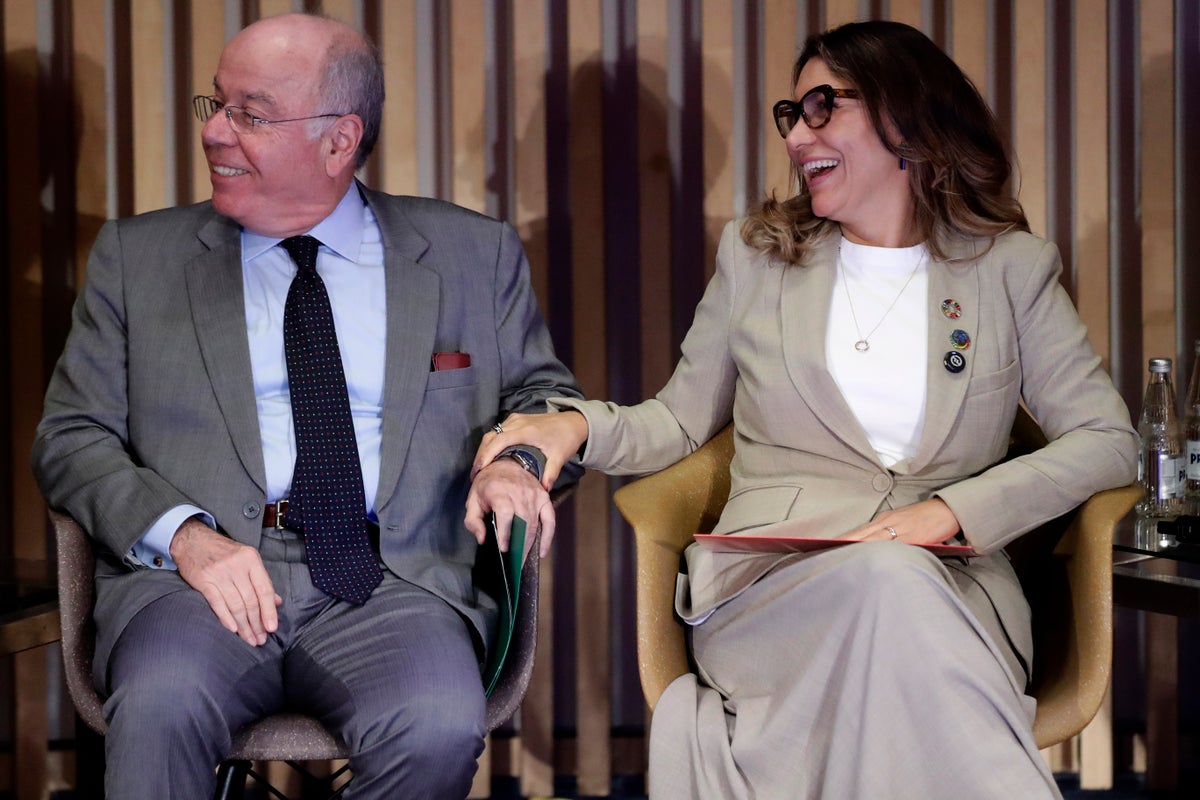
Brazil launched what it called a social summit Thursday ahead of next week's Group of 20 meeting of top economies, the first such event focused on drawing civil society input ahead of the main annual summit.
Foreign Minister Mauro Vieira said 40,000 people from G20 countries were expected to attend meetings and panels through Saturday in revamped warehouses of downtown Rio de Janeiro's port area and nearby Museum of Tomorrow. The main summit takes place in Rio on Monday and Tuesday.
Vieira told the opening ceremony, also attended by other government ministers and First Lady Rosângela da Silva, that the gathering is part of Brazil’s G20 agenda to promote sustainable development and green energy, fight poverty and reduce inequality.
“There couldn’t be a discussion or effective measures on this issue without welcoming society’s contributions,” Vieira said.
Proposals developed at the social summit will be summarized in a final document to be presented at the leaders’ summit.
First lady da Silva, known as Janja, said that kicking off the G20 with a social-focused event sets Brazil’s presidency apart from prior summits.
“I think we can make it so that, starting from this one, voices are heard and their recommendations are effectively accepted,” Janja said.
Brazil's low-income neighborhoods give input
Separately, representatives from Brazil’s low-income communities have also been gathering in Rio as part of an initiative called F20, and last week presented a joint statement outlining their priorities. These include combating inequality, promoting climate justice, improving access to sanitation and advancing digital and financial inclusion.
These neighborhoods, popularly known as favelas, are home to 16.4 million Brazilians, or 8% of the country’s population, according to the government.
And the challenges of favelas are evident in places like the mountainside Rio neighborhood of Rocinha, which recently reclaimed the title of most populous favela from another one outside the capital Brasilia. Residents in Rocinha cope with open sewage and a lack of economic opportunities.
Antonio Florencio, 58, a 40-year resident of Rocinha, expressed frustration over long-stalled infrastructure projects that fail to meet his community’s needs. The forthcoming G20 meeting seemed even farther away from his reality than the 20 kilometers (12 miles) between Rocinha and Rio’s Museum of Modern Art where the summit will be held.
“To be honest, the G20 itself is just going to discuss an agenda that’s supposed to be better for the whole country, for the world. But whether it will improve anything in this community, I don’t think it will,” he told The Associated Press.
In addition to the social G20, the Brazilian government organized a free music festival in the city’s port area from Thursday to Saturday. Popular artists such as Seu Jorge, Daniela Mercury and Zeca Pagodinho are performing.
___
Gabriela Sá Pessoa reported from Sao Paulo.







